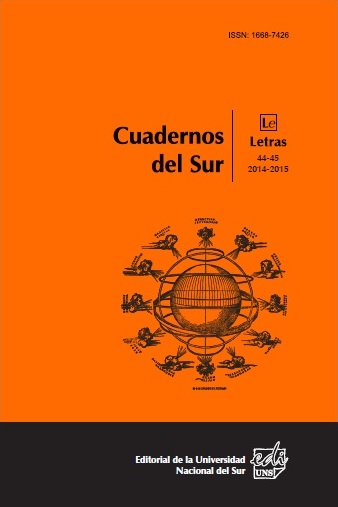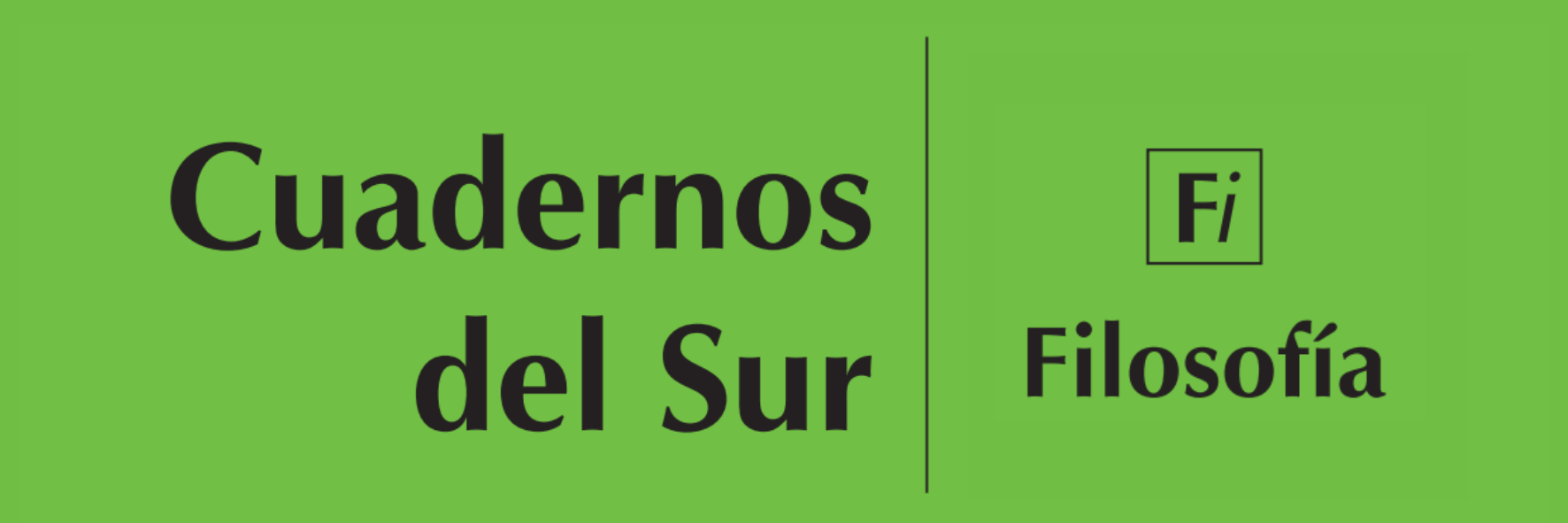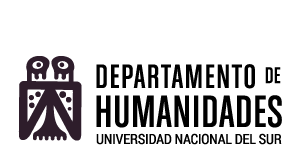Las literaturas marginales y su predicación sobre los márgenes sociales. Algunos ejemplos en la literatura cordobesa
Keywords:
literature, subordination, testimonial storiesAbstract
In this article we question the notions that defi ne the literary fi eld and we wonder about the possibility of finding an authentic place of expression for subordinate voices. In this sense, we base the article on Beverley’s (1992) reflections and apply them to a corpus of Córdoba authors who claim to state from the periphery, and a series of written and oral testimonies collected in the Creative Writing Workshop that was hosted in “Padre Hurtado” day-care center (for homeless people). What is Literature? Is there a “literature of the poor” or should we talk about a plot that continually draws on the contributions of the “illiterate” of marginalized populations? What is the place of aesthetics in the case of these testimonial forms? These and other questions prompted this essay.
Downloads
References
Beverley, John (1992), “¿Posliteratura? Sujeto subalterno e impasse de las humanidades”, en Vidal, Hernán (comp.), Hermenéuticas de lo Popular, Serie Literature and Human Rights, New Mexico, Institute for the Study of Ideologies and Literature, pp. 15-43.
Beverley, John y Achúgar, Jorge (comps.) (2002), La Voz del otro. Testimonio y subalternidad, Guatemala, Edición Latinoamericana Editores [segunda edición].
De Burgelin, Olivier (1974), “La identifi cación y la proyección”, en La comunicación de las masas, Barcelona, Planeta.
Deleuze, Gilles y Guattari, Félix (1985), El Antiedipo: Capitalismo y esquizofrenia, Barcelona, Editorial Barcelona.
Dominé, Marcela (1999), “Autobiografía literaria”, en Letrados iletrados: representaciones de lo popular en la literatura, Buenos Aires, Editorial Universitaria de Buenos Aires SEM, pp. 199-213.
Freud, Sigmund (2008), El malestar en la cultura y otros ensayos, Barcelona, Alianza Editorial.
Laplanche, Jean y Pontalis, Jean-Bertrand (1996), Diccionario de Psicoanálisis, Buenos Aires, Paidós.
Ludmer, Josefina (2006), “Literaturas Postautónomas”, [disponible en http://www.josefinaludmer.wordpress.com].
Marcuse, Herbert (2010), Eros y Civilización, Barcelona, Ariel.
Rama, Ángel (1997), La ciudad letrada, Montevideo, Mundo.
Rosa, Nicolás (1997), “La Mirada Absorta”, en La lengua del ausente, Buenos Aires, Biblos, pp. 113-129.
Remedi, Gustavo (1992), “Esfera pública popular y transculturadores populares; Propuesta de interpretación y crítica de la cultura nacional desde las prácticas culturales de las clases subalternas”, en Vidal, Hernán (comp.), Hermenéuticas de lo popular, Minneapolis, The Prisma Institute, pp. 127-204, [serie “Literatura and Human Rights” n°1].
Rodríguez, Juan Carlos (1985), La literatura del pobre, Barcelona, Comares.
Sotelo, Horacio (2005), Cavernas, Ciudad de Buenos Aires, Fundación Refundar Argentina.
Spivak, Gayatri (2011), ¿Puede hablar el sujeto subalterno?, Buenos Aires, El Cuenco de Plata.
Valle, Glenda (2010), “La narración como terapia para sanar las heridas del alma”, en Perspectivas, [disponible en: http://perspectivasenpsicoterapia.blogspot.com.ar/2010/05/la-narracion-como-terapia-para-sanar.html].
Downloads
How to Cite
Issue
Section
License
Copyright (c) 2014 Mariana Valle

This work is licensed under a Creative Commons Attribution-NonCommercial-ShareAlike 4.0 International License.
Aquellos autores/as que tengan publicaciones con esta revista, aceptan los términos siguientes:
- Los autores/as conservarán sus derechos de autor y garantizarán a la revista el derecho de primera publicación de su obra, el cuál estará simultáneamente sujeto a la licencia Atribución-No Comercial 4.0 Internacional CC BY-NC 4.0.
- Los autores/as podrán adoptar otros acuerdos de licencia no exclusiva de distribución de la versión de la obra publicada (p. ej.: depositarla en un archivo telemático institucional o publicarla en un volumen monográfico) siempre que se indique la publicación inicial en esta revista.
- Se permite y recomienda a los autores/as difundir su obra a través de Internet (p. ej.: en archivos telemáticos institucionales o en su página web) una vez publicado su trabajo, lo cual puede producir intercambios interesantes y aumentar las citas de la obra publicada. (Véase El efecto del acceso abierto).








